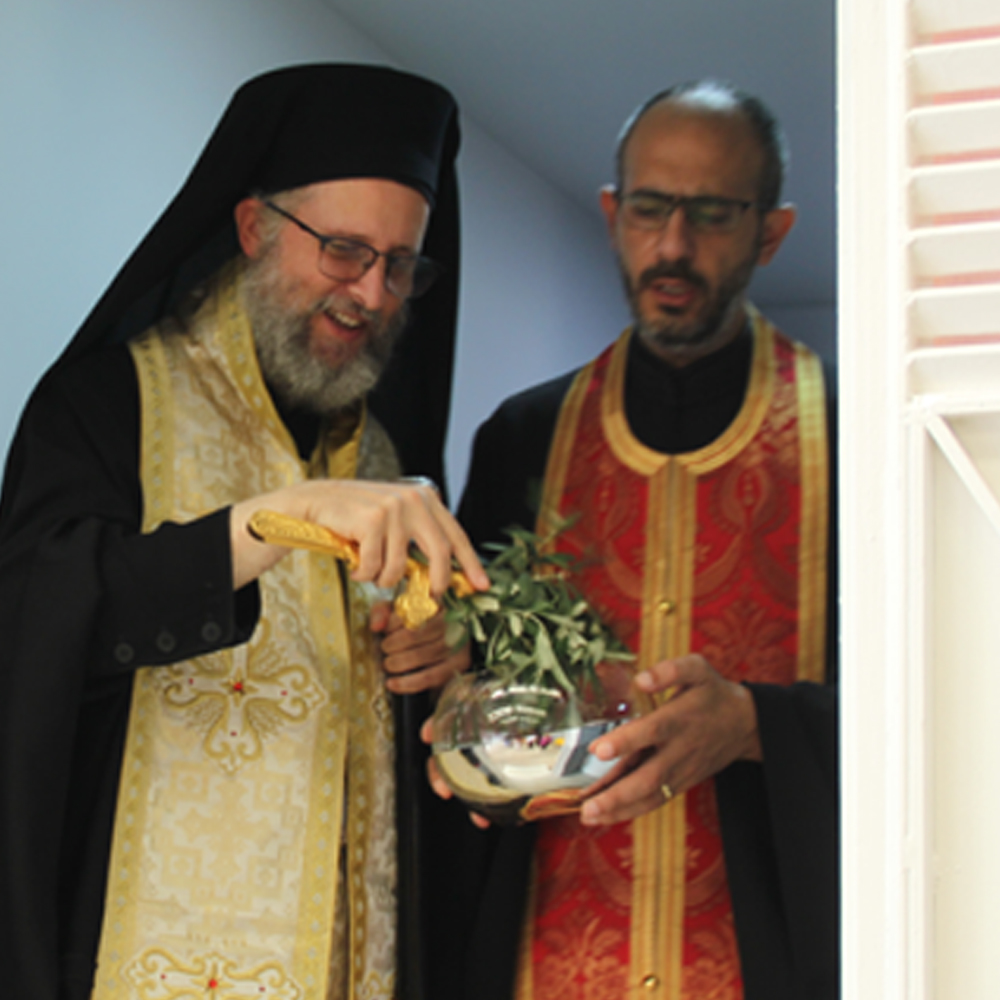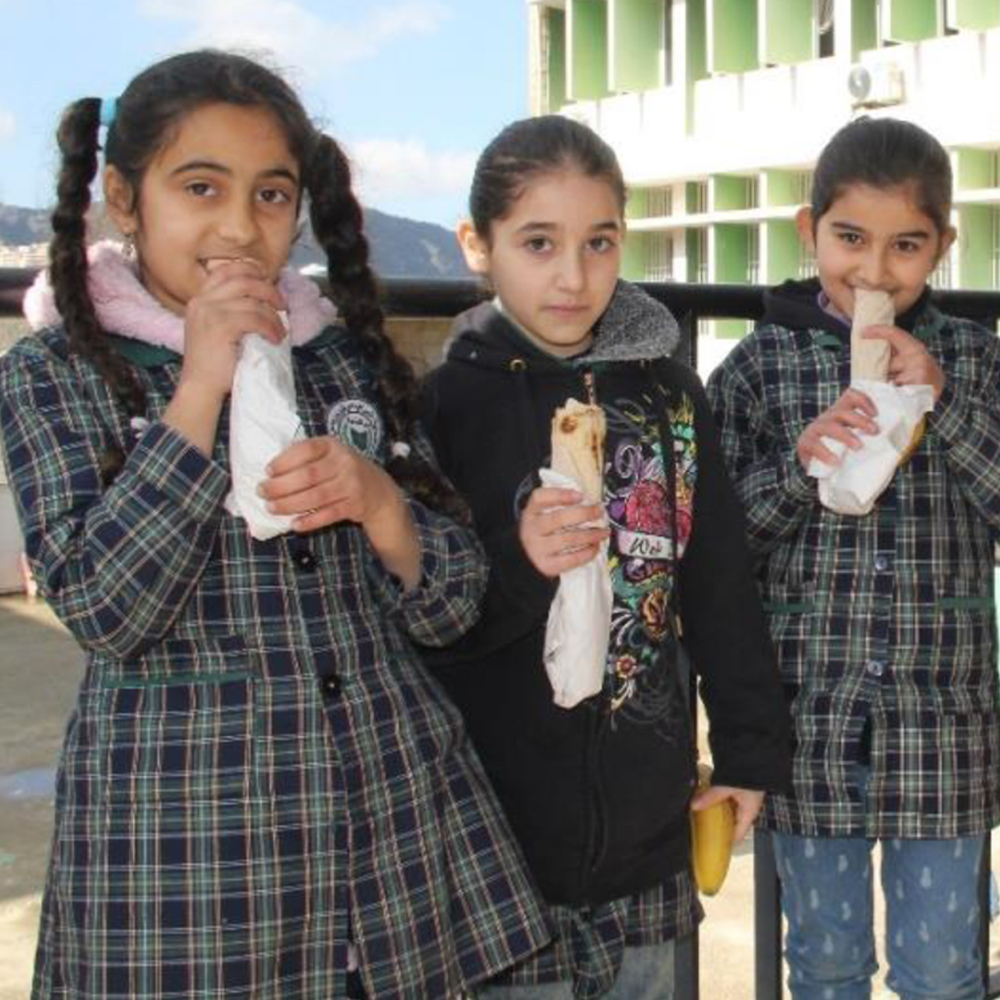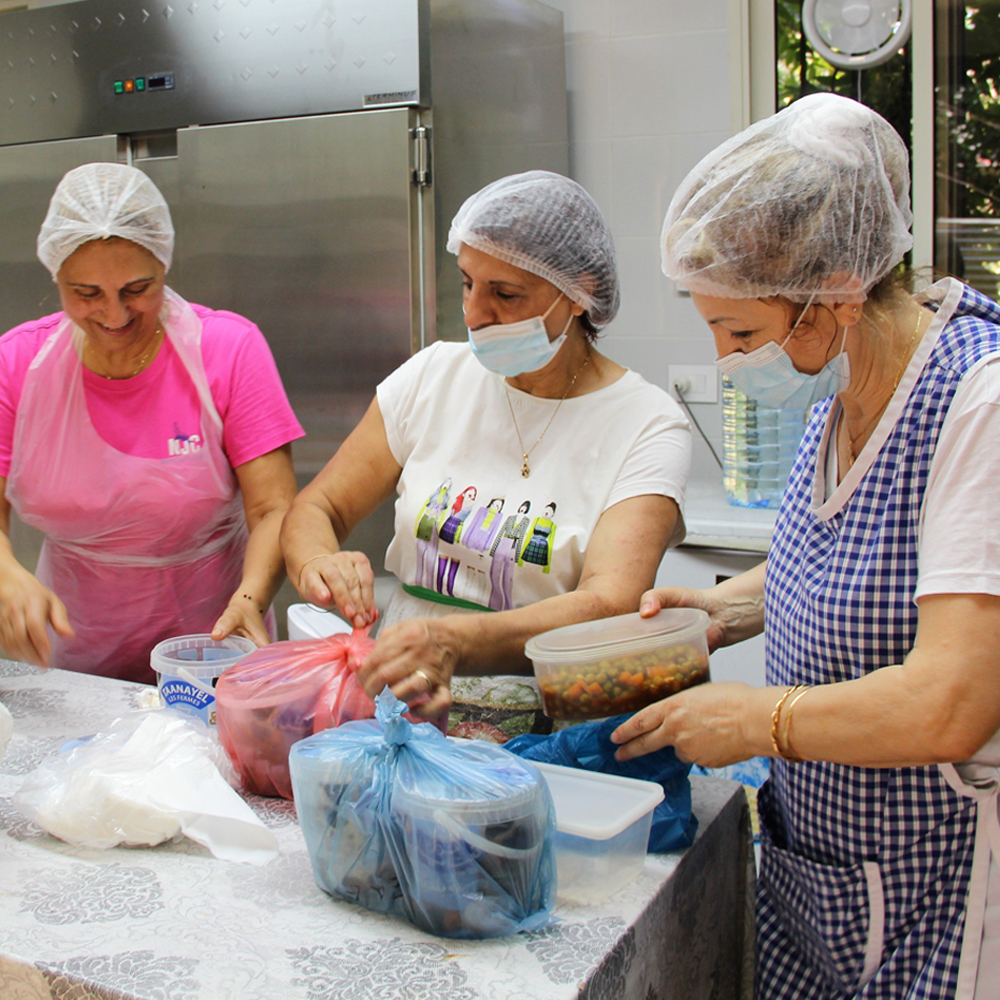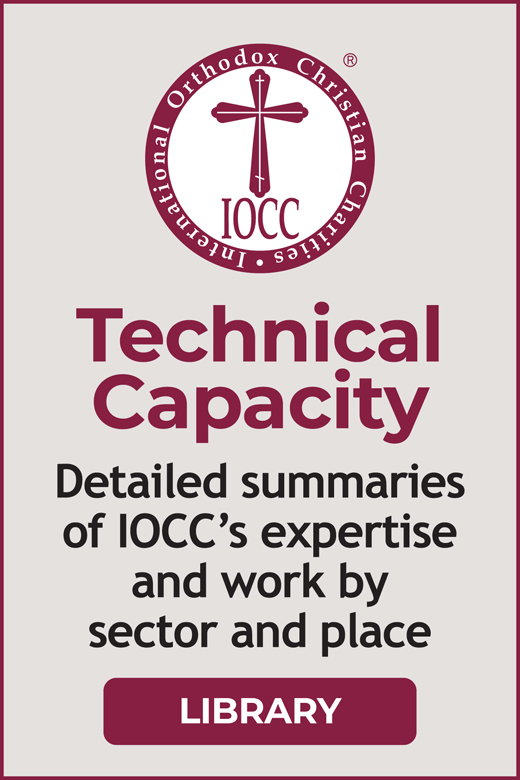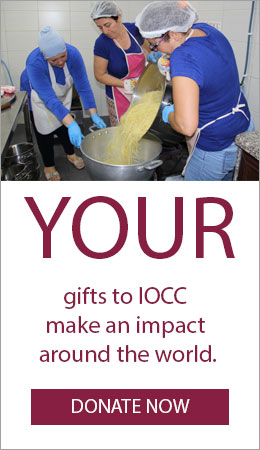Working for a Better Tomorrow
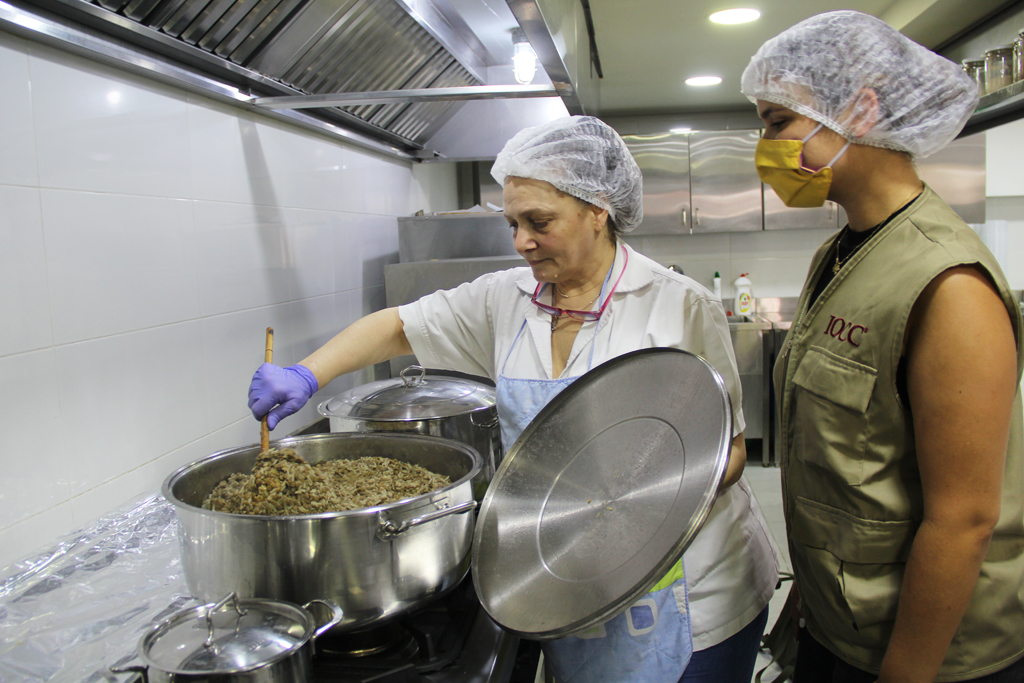
Since 2001, IOCC has responded to humanitarian needs in Lebanon across sectors—from nutrition and education to water networks strengthening Lebanese communities and, in more recent years, also assisting refugees fleeing conflict in Syria while continuing to help Lebanese families struggling amid deepening socioeconomic crisis.
Healthier Futures
In Lebanon, IOCC boosts access to health services and helps local people connect and educate each other. Mother-child health is a top focus, including malnutrition screening for kids and health education for parents. In underserved areas, IOCC helps thousands of people access primary healthcare, including through mobile health units, and repaired clinics and hospitals after the 2020 Beirut explosion.
Improving Student Nutrition
When children have enough to eat, they can concentrate on learning. IOCC’s school snack program offers healthful food to over 63,000 students 100+ public schools across Lebanon. The program also upgrades and operates school kitchens, training and employing students’ mothers as kitchen crew. During COVID-19, the program provided regular food to about 19,000 families in need whose children normally attended those schools.
Safe Water, Better Health
IOCC has built communal water reservoirs and installed solar-powered systems to run water pumps, providing better access and water storage to both Lebanese and refugees communities in need. Hygiene-awareness campaigns connect communities to learn about family hygiene, mother-child health, household and food hygiene, COVID-19 prevention, and sanitation. These programs reached about 17,700 people in 2022 alone.
Hot Meals through Community Kitchens
IOCC created an award-winning community kitchen program to serve both refugees and Lebanese families in need, training women from both communities to prepare food together in large quantities. The program delivered hundreds of hot meals by van weekly to families across northern Lebanon. After the 2020 Beirut explosion, an IOCC kitchen provided hot meals to nearly 6,000 people for up to six months.
Your Gifts at Work
Responding to the Beirut Explosion
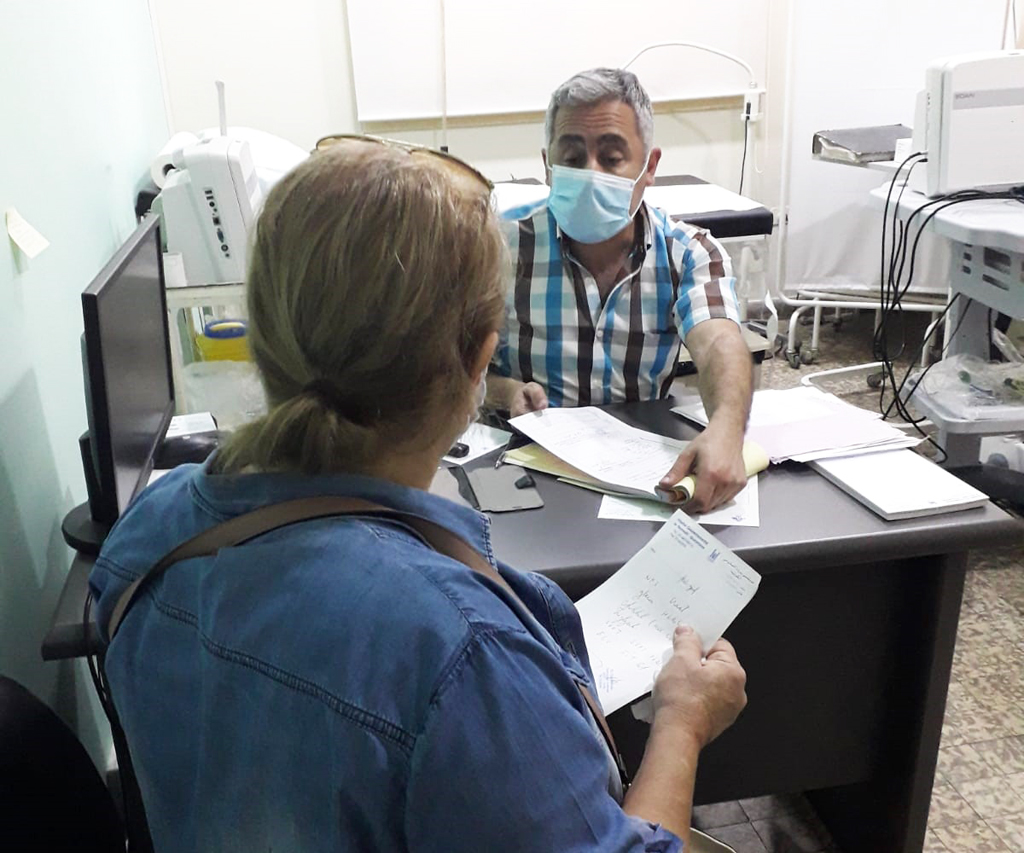
On August 4, 2020, Beirut, Lebanon was devastated by a tragic explosion, deepening crisis for a country already facing many challenges. Having worked in Lebanon for over 20 years, IOCC was positioned to begin relief efforts almost immediately. After rapid needs assessments, IOCC identified ways to provide short-term assistance while also laying the groundwork for longer-term initiatives like repairing homes, businesses, and health centers. In the year following the blast, IOCC helped over 153,000 people affected by the explosion.
Food Security
- Community Kitchen: Set up immediately after the blast, ensuring access to 33,610 nutritious hot meals and bread for nearly 6,000 people (Lebanese and refugees) for up to six months
- Food Rations: Monthly food packages improved food security for nearly 400 families (Lebanese and refugees)
Emergency Supplies
- Providing personal hygiene and COVID-19 prevention kits for over 28,000 people
- Providing dignity kits to 1,500 Lebanese and refugee women
Health & Psychosocial Support
- Facilitating access to free health consultations, psychosocial support, and diagnostic testing at three primary health centers near Beirut’s port for 9,750+ people (Lebanese and refugees)
- Increasing awareness on COVID-19 and food safety for nearly 12,000 people
- Providing breastfeeding support and infant-nutrition awareness for 15,200+ Lebanese and refugee women
Repairs to Damaged Buildings
- 547+ homes and apartments, serving 2,360 Lebanese people with improved shelter conditions
- 125+ small businesses, restoring income for over 600 Lebanese people and refugees
- 7 primary healthcare centers, facilitating access to health services for 16,120 patients annually
- Rosaire Hospital: Repairs helped restore services for 21,000 patients annually
- St. George University Hospital: Repairs helped restore services for 35,000 patients annually
- 5 schools serving 2,100+ Lebanese and refugee students
- A Sunday school and its educational building, which host 1,300+ children and adults for religious education and community activities


